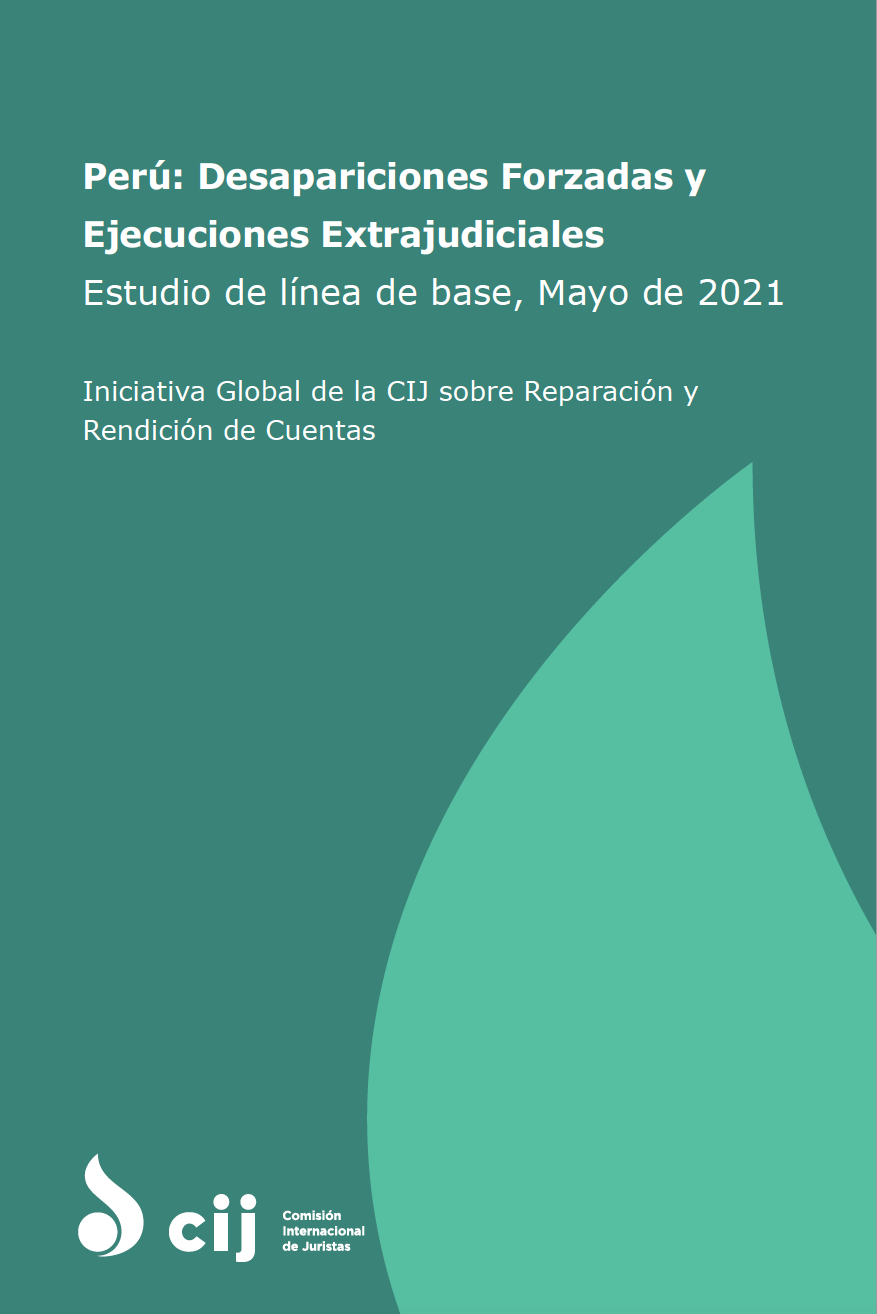Peru has persistently failed to deliver accountability for enforced disappearances and extra-judicial killings, found the ICJ in a report released today.
The baseline study Perú: Desapariciones Forzadas y Ejecuciones Extrajudiciales, Estudio de línea de base (published in Spanish) identifies key obstacles to accountability for serious human rights violations in Peru, particularly for crimes under international law committed during the country’s internal armed conflict (1980-2000).
“There can be no sustainable peace without justice, and providing accountability and ending impunity demand committed implementation of judicial and non-judicial mechanisms”, said Sam Zarifi, Secretary General of the ICJ.
“It is worrisome that the human rights agenda is not a priority for the national government or the justice system. Considering that a new president will be elected soon, it is crucial that the new national government takes measures to prioritize human rights among the public policies. In particular, measures to improve criminal accountability and to provide full and effective reparation to victims should be adopted by the new government as an urgent matter,” he added.
Against a backdrop of ongoing impunity in the country, the ICJ found victims’ rights are not upheld despite the fact they are recognized under the domestic legal framework.
The justice system has handed down less than 100 criminal verdicts on human rights cases related to the armed conflict. The figure is surprisingly low considering that human rights violations and abuses were widespread and systematic during the armed conflict.
In relation to extrajudicial killings alone, the Truth Commission (Comisión de la Verdad y Reconciliación) documented 7,334 cases. In the case of enforced disappearance, the General Direction for the Search for Disappeared Persons (Dirección General de Búsqueda de Personas Desaparecidas) has documented 21,793 cases.
The study also examined other challenges such as the lack of implementation of reparation programmes, the slow progress in the search for the disappeared, and inadequate domestic legislation on the use of force by law enforcement officers.
Among others, the study recommends Perú should take the following steps:
- Improve the investigation and prosecution of serious human rights violations. To do so, among other measures, Perú should appoint judges and prosecutors exclusively dedicated to these crimes. Similarly, the Prosecution Office should consider not taking a case-by-case approach to investigations. Rather, it should follow a more systematic approach to identifying criminal patterns.
- Guarantee victims’ rights during criminal proceedings. Judicial authorities should ensure that victims can participate in each stage of the criminal proceedings. This is particularly important for videoconferencing hearings. Similarly, victims should have effective access to legal advice from the early stages of the criminal justice process.
- Improve the search for the disappeared. The national government must provide sufficient human and financial resources to ensure that the General Direction for the Search for Disappeared Persons may perform its mission adequately. At the same time, better coordination between the General Direction and the Prosecution Office is necessary. In addition, more effort should be applied to improve victims’ understanding of the Law on the search for disappeared persons (Law 30470).
Background
The baseline study was produced as part of the ICJ’s regional project addressing justice for extrajudicial killings and enforced disappearances in Colombia, Guatemala and Perú, sponsored by the European Union. The baseline study is available in Spanish.
The ICJ has long been monitoring laws, policies and practices concerning the investigation and prosecution of serious human rights violations and abuses in Perú, including enforced disappearances and extrajudicial killings, as part of its efforts to promote accountability, justice and the rule of law around the world.
The project is implemented under the ICJ’s Global Accountability Initiative, which has also produced baseline studies for Colombia, Eswatini, Nepal, Myanmar, Venezuela, Cambodia, Tajikistan and Tunisia.
Contacts:
Kingsley Abbott, Director of Global Accountability & International Justice. Email: kingsley.abbott(a)icj.org
Carolina Villadiego Burbano, Legal and Policy Adviser, Latin America, and Regional Coordinator of the Project. Email: carolina.villadiego(a)icj.org
Rocío Quintero M, Legal Adviser, Latin America. Email: rocio.quintero(a)icj.org
Download
Peru-GRA-Baseline-Study-Publications-Reports-Thematic-reports-2020-SPA (full report in Spanish, PDF)

